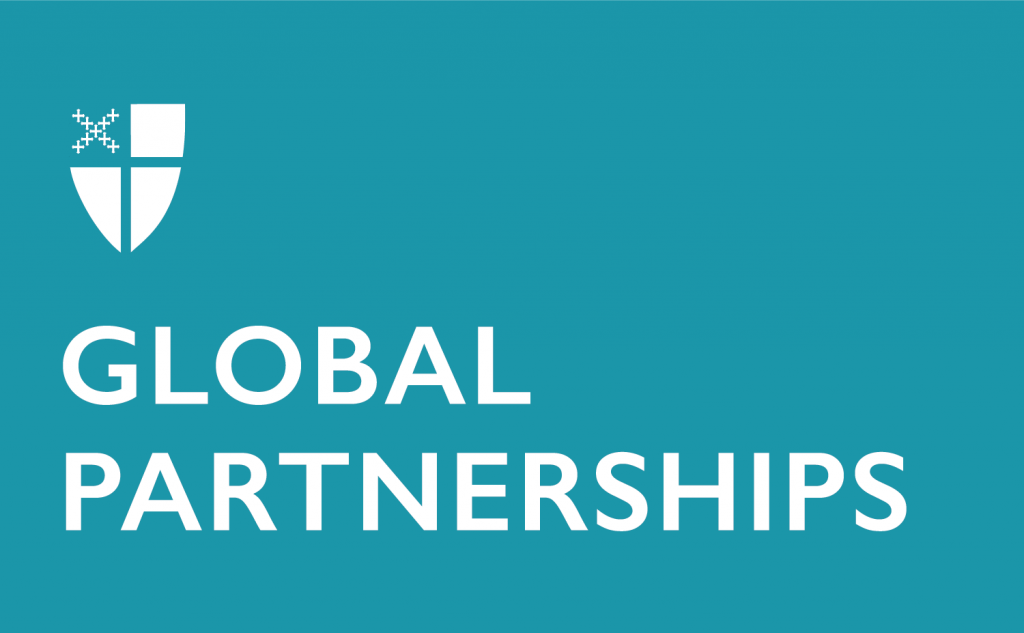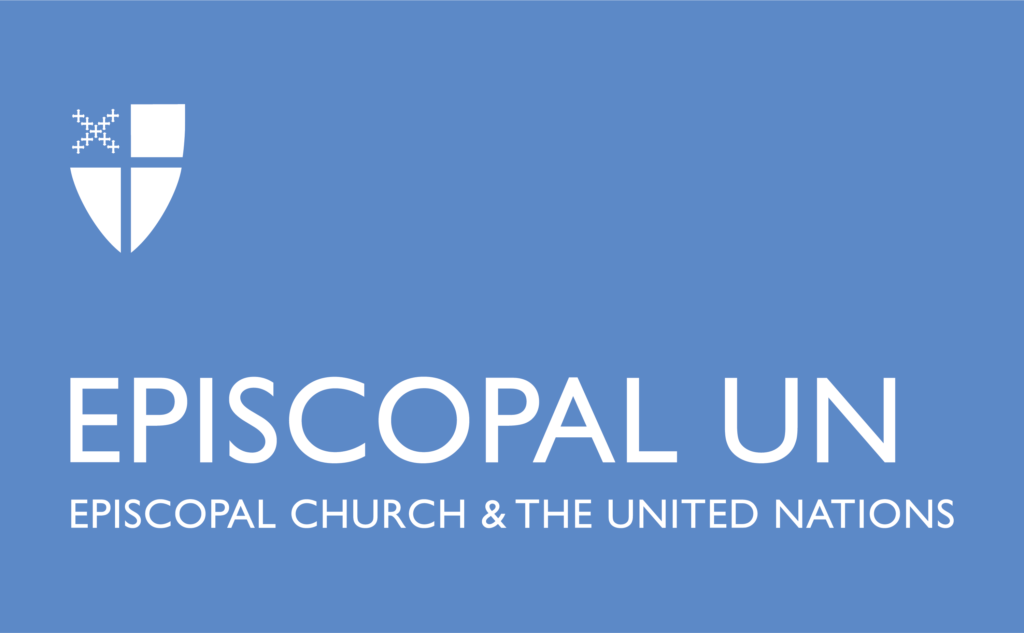The Impact and Implementation of the Beijing Platform
The Women’s Global Village
By: Dr. Chiseche Mibenge, Director, Gender Initiatives, Episcopal Relief & Development/ Dra. Chiseche Mibenge, Directora, Iniciativas de Género, Episcopal Relief & Development
In 1995, I was a twenty year old Law student at the University of Zambia. I didn’t fully understand the buzz around Beijing. What I did understand was that the army of mothers who raised me wanted more for me. More opportunity, more power, more freedom, more choice, more status, more independence, more room to define my own visions of love, dignity and success. They were not bitter about the ways that sex, race and gender based oppressions had denied them full citizenship in their homes and in the public space – they were insanely witty, wily, wise and gracious in the ways they coached, disciplined and nurtured me.
I celebrated the women protesting at the Global Village in Beijing, but I didn’t experience them as a miracle. Rather, they were familiar to me because I was a child reared in a women’s village, and my mother chiefs were delighted but not surprised that my PhD dissertation was a feminist critique of the international law protections of women’s rights. Not surprised that my book opens with a chapter about the Beijing Declaration, the Vienna Declaration, and the Convention for the Elimination of All Forms of Discrimination Against Women. Not surprised that as a Presiding Bishop’s delegate to UNCSW 63, I am blogging about the global women’s villages that have transformed the international law discourse about women’s agency whilst animating the most grassroots of movements, such as Tarana Burke’s #metoo, Black queer peoples’ #AllBlackLivesMatter and Episcopal Women’s Beijing Circles.
Beijing sets strategic objectives for the advancement of women and the achievement of gender equality. It organizes these actions under 12 interdependent critical areas of concern. In my career I have always paid special attention to the eighth critical area of concern (No. 8) which addresses “institutional mechanisms for the advancement of women.” No. 8 asks organizations to promote an active and visible policy of mainstreaming a gender perspective in all policies and programs so that, before decisions are taken, an analysis is made of the effects on women and men; provide staff training in designing and analyzing data from a gender perspective; integrate gender perspectives in legislation, public policies, programs and projects; and generate and disseminate gender disaggregated data and information for planning and evaluation.
I am an Anglican and my fellowship with The Episcopal Church is coming up to five years. I am discovering and engaging with a village of women and allies across the Church and the Anglican Communion that are taking on the commitments to institutional implementation demanded by Beijing. This global village, and its machineries for the advancement of women must be strengthened and affirmed at the highest political levels, it must be well resourced and empowered to influence Church legislation and lead advocacy efforts for implementing gender equality and inclusion. And where there are gaps and new threats and pushback to gender equity, the village must be able to create new bodies in response.
________________________

About the author: Dr. Chiseche Salome Mibenge is the Director, Gender Initiatives at Episcopal Relief & Development, the humanitarian response of the Episcopal Church. She provides leadership on human rights and gender strategy and supports global partners addressing early childhood development, gender equity and climate resilience. Chiseche studied Law at the University of Zambia and received her PhD in International Human Rights Law from Utrecht University’s School of Law. She is the author of Sex and International Tribunals: The Erasure of Gender from the War Narrative (UPenn Press), and is the co-editor of the Palgrave MacMillan book series, Human Rights Interventions.
El impacto y la implementación de la plataforma de Beijing
La aldea global de las mujeres
En 1995, era un estudiante de derecho de veinte años en la Universidad de Zambia. No entendí completamente el rumor alrededor de Beijing. Lo que sí entendí fue que el ejército de madres que me crió quería más para mí. Más oportunidades, más poder, más libertad, más opciones, más estatus, más independencia, más espacio para definir mis propias visiones de amor, dignidad y éxito. No estaban amargados por las formas en que las opresiones basadas en el sexo, la raza y el género les habían negado la ciudadanía plena en sus hogares y en el espacio público; eran increíblemente ingeniosos, astutos, sabios y amables en las formas en que me entrenaron, disciplinaron y nutrieron.
Celebré a las mujeres que protestaban en la Aldea Global de Beijing, pero no las experimenté como un milagro. Más bien, me eran familiares porque era una niña criada en una aldea de mujeres, y mis jefes madres estaban encantados pero no sorprendidos de que mi tesis doctoral fuera una crítica feminista de las protecciones de los derechos de las mujeres por el derecho internacional. No me sorprende que mi libro se abra con un capítulo sobre la Declaración de Beijing, la Declaración de Viena y la Convención para la eliminación de todas las formas de discriminación contra la mujer. No me sorprende que, como delegada del Obispo Presidente de la UNCSW 63, estoy blogueando sobre las aldeas globales de mujeres que han transformado el discurso del derecho internacional sobre la agencia de las mujeres al tiempo que anima la mayoría de los movimientos de base, como #metoo, pueblos queer negros de Tarana Burke #AllBlackLivesMatter y los Circulos de Beijing de Mujeres Episcopales.
Beijing establece objetivos estratégicos para el adelanto de la mujer y el logro de la igualdad de género. Organiza estas acciones bajo 12 áreas críticas de interés interdependientes. En mi carrera, siempre he prestado especial atención a la octava área crítica de preocupación (No. 8) que aborda los “mecanismos institucionales para el adelanto de la mujer”. No. 8 pide a las organizaciones que promuevan una política activa y visible de incorporar una perspectiva de género en todas las políticas y programas para que, antes de tomar decisiones, se haga un análisis de los efectos en mujeres y hombres; proporcionar capacitación al personal en el diseño y análisis de datos desde una perspectiva de género; integrar las perspectivas de género en la legislación, políticas públicas, programas y proyectos; y generar y difundir datos e información desglosados por género para la planificación y evaluación.
Soy anglicano y mi comunión con la Iglesia Episcopal está llegando a los cinco años. Estoy descubriendo e interactuando con un pueblo de mujeres y aliados en toda la Iglesia y la Comunión Anglicana que están asumiendo los compromisos de implementación institucional exigidos por Beijing. Esta aldea global y sus mecanismos para el adelanto de la mujer deben fortalecerse y afirmarse en los niveles políticos más altos, debe contar con los recursos y el poder necesarios para influir en la legislación de la Iglesia y liderar los esfuerzos de promoción para implementar la igualdad y la inclusión de género. Y donde hay brechas y nuevas amenazas y retrocesos hacia la equidad de género, la aldea debe ser capaz de crear nuevos cuerpos en respuesta.
_______________________
Sobre el autor: la Dra. Chiseche Salome Mibenge es Directora de Iniciativas de Género en Episcopal Relief & Development, la respuesta humanitaria de la Iglesia Episcopal. Proporciona liderazgo en derechos humanos y estrategia de género y apoya a socios globales que abordan el desarrollo de la primera infancia, la equidad de género y la resiliencia climática. Chiseche estudió Derecho en la Universidad de Zambia y recibió su doctorado en Derecho Internacional de los Derechos Humanos de la Facultad de Derecho de la Universidad de Utrecht. Es autora de Sex and International Tribunals: The Erasure of Gender from the War Narrative (UPenn Press), y es la coeditora de la serie de libros Palgrave MacMillan, Human Rights Interventions.


